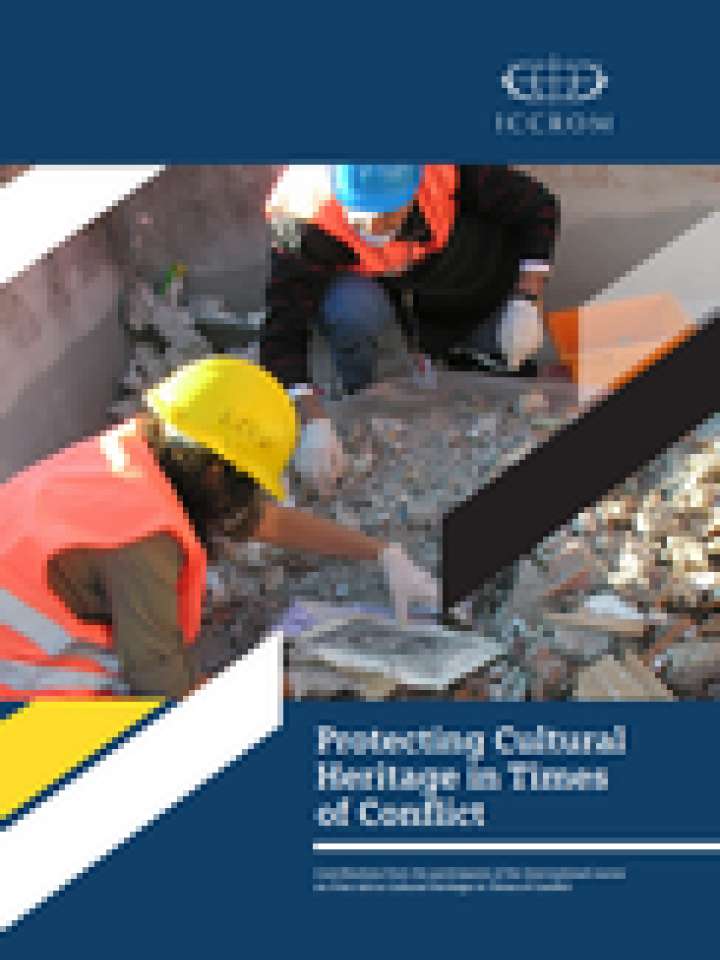Protecting cultural heritage in times of conflict
This document is an outcome of the 2010 course "First aid to cultural heritage in time of conflict", which aimed to create a framework to secure cultural heritage in such times. Part 3 of the document includes lessons learned from experiences with natural disasters. It presents: (i) the case of the earthquake in the Syrian Kodar village in 2005 as a culture-oriented approach to recover from disaster, highlighting the use of indigenous knowledge to redevelop the village where the importance of people's link with their past was a major component during the process; and (ii) the case of the Irrawaddy Delta in Myanmar as an example of the impact of natural disaster on tangible and intangible cultural heritage, sharing personal experiences and challenges in preserving and promoting tangible and intangible cultural heritage, in particular in the field of traditional performing arts and discusses the experiences and lessons learnt from work undertaken in the delta region of Myanmar, ravaged by Cyclone Nargis in 2008. It highlights what efforts can be made to prevent further damage and restore the traditional skills, knowledge, techniques and culture-related objects that were damaged and destroyed.
While developing effective strategies for disaster preparedness and response has been at the core of ICCROM’s training strategy on preventive conservation and risk management of cultural heritage for many years, this document is the result of ICCROM’s shifted attention from natural disasters to armed conflicts. So the overall document is intended to contribute to the creation of a critical mass of professionals who can intervene effectively to secure cultural heritage in such times of conflict, and who can work with other actors to integrate this protection into overall planning for peace and recovery.
Explore further

